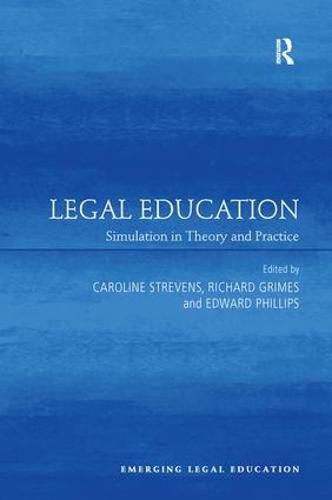Readings Newsletter
Become a Readings Member to make your shopping experience even easier.
Sign in or sign up for free!
You’re not far away from qualifying for FREE standard shipping within Australia
You’ve qualified for FREE standard shipping within Australia
The cart is loading…






The importance of simulation in education, specifically in legal subjects, is here discussed and explored within this innovative collection. Demonstrating how simulation can be constructed and developed for learning, teaching and assessment, the text argues that simulation is a pedagogically valuable and practical tool in teaching the modern law curriculum. With contributions from law teachers within the UK, Australia, Hong Kong, South Africa and the USA, the authors draw on their experiences in teaching law in the areas of clinical legal education, legal process, evidence, criminal law, family law and employment law as well as teaching law to non-law students. They claim that simulation, as a form of experiential and problem-based learning, enables students to integrate the ‘classroom’ experience with the real world experiences they will encounter in their professional lives. This book will be of relevance not only to law teachers but university teachers generally, as well as those interested in legal education and the theory of law.
$9.00 standard shipping within Australia
FREE standard shipping within Australia for orders over $100.00
Express & International shipping calculated at checkout
The importance of simulation in education, specifically in legal subjects, is here discussed and explored within this innovative collection. Demonstrating how simulation can be constructed and developed for learning, teaching and assessment, the text argues that simulation is a pedagogically valuable and practical tool in teaching the modern law curriculum. With contributions from law teachers within the UK, Australia, Hong Kong, South Africa and the USA, the authors draw on their experiences in teaching law in the areas of clinical legal education, legal process, evidence, criminal law, family law and employment law as well as teaching law to non-law students. They claim that simulation, as a form of experiential and problem-based learning, enables students to integrate the ‘classroom’ experience with the real world experiences they will encounter in their professional lives. This book will be of relevance not only to law teachers but university teachers generally, as well as those interested in legal education and the theory of law.